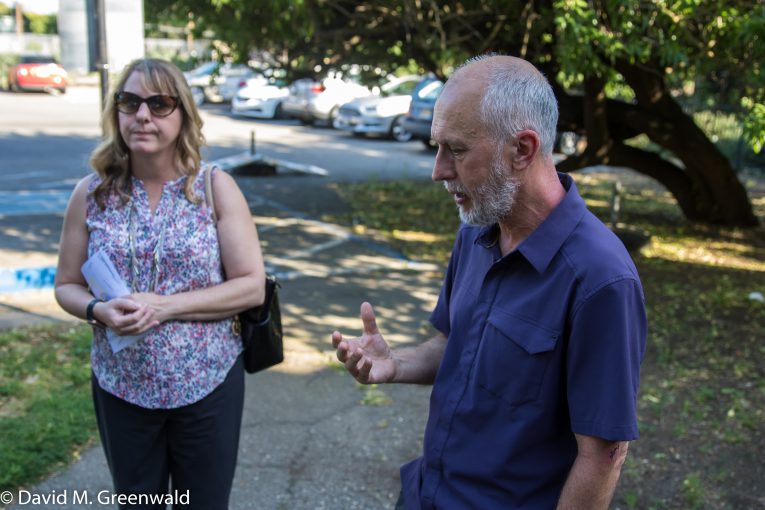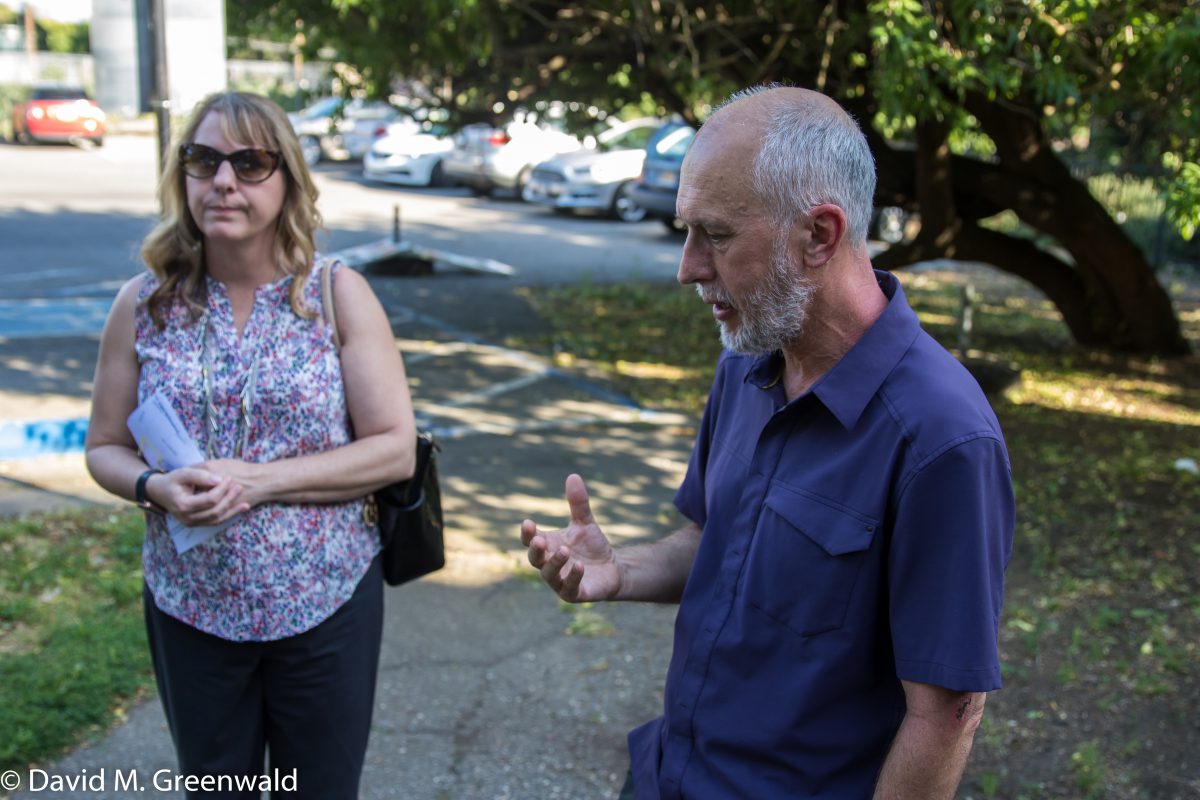

By Ryan Collins and Robb Davis
Over the past two years several programs to address the challenges of homelessness—especially chronic or long-term homelessness—in Davis have taken shape. Collectively known as “Davis Pathways” they include a comprehensive program, using hard-to-come-by vouchers and case management, to permanently house people living on the streets; a job training program to help people move back into the workforce; and greater coordination of local efforts via the hiring of a Homeless Outreach Coordinator (Ryan Collins, one of the authors of this piece).
The initial results are encouraging, with 7 of 10 people in the housing first program obtaining and keeping housing, and 7 of 10 people going into the more recently developed job training program finding jobs. Coordination efforts are already yielding more effective case management and reduction of duplicated efforts, and more frequent engagement with people living rough to encourage their participation in these programs.
Despite the successes—modest but still important for a city the size of Davis—critical challenges remain. While a generous grant from the Sutter foundation has enabled us to provide “bridge” vouchers to move people into housing while they await federal vouchers, the amounts of the vouchers are often too small to permit people to rent market-rate units. Landlords who will accept such  vouchers are hard to find and the result is that people needing vouchers end up competing for scarce units in affordable housing complexes with existing permanent rent controls.
vouchers are hard to find and the result is that people needing vouchers end up competing for scarce units in affordable housing complexes with existing permanent rent controls.
The latter have been built in Davis over the past generation largely through land dedication sites provided by developers in exchange for entitlements. Many of these came online during the years of rapid peripheral growth and are now rare. There are two new ones in the plans at this time that will provide—assuming they find state and federal support—some 120 units for low income individuals. A smaller number of these units will meet the needs of currently homeless individuals who will need some form of permanent supportive housing.
Going forward, Davis will need to find ways to build more of this kind of affordable housing, coax landlords to provide units for voucher recipients, and, perhaps, create its own voucher program that allows for local tailoring of voucher amounts to needs and available rents. This will require a stable revenue source, something that does not currently exist.
Even with these programs we know that a certain percentage of homeless individuals will not immediately avail themselves of these opportunities. Especially those who have been on the streets for a long time—suffering from the trauma brought on by that experience; those with chronic and untreated mental illnesses; those with substance use disorders; or more commonly co-occurring illnesses comprised all of these—may be fearful of making a change. This is why our efforts going forward must also focus on building relationships with people on the streets.
The ends of our efforts should be to provide a “homecoming” for them—a welcoming back, a reintegration, a return. More than anything homelessness is a form of alienation: alienation from society, from healthy relationships, and ultimately from oneself. This alienation is not a choice; the evidence is clear that choice has very little to do with it and maybe never did.
What we see are folks who are adrift, dis-integrated, on the margins of the community. Though they are in our midst they are the “other” in a way that causes fear. Though we see them, we do not— indeed, seemingly cannot—look at them. Though we know they are without a home we do not want to imagine the places in which they lay their heads. We need to send out a message, to find a way to communicate that we want them not just among us, but with us; not just present, but included; not just housed, but home.
indeed, seemingly cannot—look at them. Though we know they are without a home we do not want to imagine the places in which they lay their heads. We need to send out a message, to find a way to communicate that we want them not just among us, but with us; not just present, but included; not just housed, but home.
What this homecoming will look like varies by the case, but it will certainly mean a return to mental and physical health, a job if that is possible, meaningful and healthy relationships (even if not with kin), a sense of peace about where one will go the next day to take care of life’s basic needs, and most critically, a stable roof over one’s head.
Housing is a primary determinant of one’s health and well-being; in its absence, a person’s fundamental needs for shelter and security go unmet. Every night on the streets ages a person more than twice as quickly as one under a roof. Until this foundational cornerstone of health is in place, services and treatment to improve a person’s conditions are proven to be dramatically less effective.
The foregoing points the way to the kinds of programs, approaches, processes that will be necessary to achieve this end: housing, mental health and addiction treatment, job training, and supportive services. Some of these, as noted, are underway. But there is a means that will make all these other means actually work: we must approach this challenge as a tireless “pursuit.”
Pursuit means we must commit to the relational. We must doggedly pursue the people whom we wish to welcome home. We must never see homelessness as merely a “technical” problem to be solved, a condition that lends itself to dose/response type input, or left to a cadre of professionals who deliver programs. No, we must pursue loving and longstanding relationships as simple folks with the simple commitment to press on. We must not grow weary because of the failures and the inevitable disappointments. We must be determined to continue.
Experience has shown that an unsheltered person who says “no” to services today may be open and willing tomorrow, or next week, or next year. The only question is whether there will be someone in relationship with him or her to provide a pathway when they are ready to make a change.
Not everyone is gifted to be a “pursuer.” But for those who are gifted; for those who were made, or who have grown to do this work, we must be relentless in our pursuit of the relationships that result in the homecoming of these, our brothers and sisters without homes.
This is what will make our Pathways programs, ultimately, successful. We stand ready in the coming months to train volunteers willing to play this role. Contact us if you are interested.
Ryan Collins is the Homeless Outreach Coordinator for the City of Davis and Robb Davis is the Mayor of Davis

Many thanks, Robb and Ryan, for sharing these constructive thoughts.
I second Michael’s sentiments…
Had an intense 12 week experience trying, with others, to help a homeless person who asked me to… random meeting.
He is intelligent, had been productive member of society, spiritual still, and …
He has a “constellation” of the factors… lack of shelter, age, alcohol and drug use, physical and mental health issues (both relatively mild, and treatable)… but dealing with just one or two of the factors just didn’t seem to “move the football”… it is “rocket science”, in a way, to find the combination of resources needed to truly help him, rather than just sustain him…
It will not be easy, but with personal, societal, medical, and financial resources, it appears possible…
In Hawaii I think that doctors are prescribing housing for the homeless:
The funny thing about this solution is that it actually requires housing. I struggle being supportive of homelessness programs in Davis in the midst of so many residents that block housing development. I hope that all of those making homelessness a cause to solve are also fully supportive of more housing development within town and on the periphery.
I agree with Jeff that housing is critical to helping the unsheltered who are willing to move off the street. We are currently in a visioning process for the downtown area and ultimately for the city as a whole. One thing I would like to consider is adoption of several housing alternatives the may be especially helpful to the extremely low income population and unsheltered.
1. Tiny houses suitable for one to two occupants might be attractive to students, young professionals, seniors who wish to do a dramatic downsizing, and the unsheltered.
2. Incorporation of tiny apartments into multiple apartment complexes that typically have one, two and three bedrooms as their mix. We encountered housing for very low income residents in an AirBNB apartment complex when visiting in Denver.
Housing alone is not the solution… many factors… if other factors are not dealt with, they (homeless) walk away after time, except for the “low-hanging fruit” (unsjeltered student for example) where housing was the only issue…
That said, housing/shelter is a necessary pre-cursor to any other intervention/treatment/help…